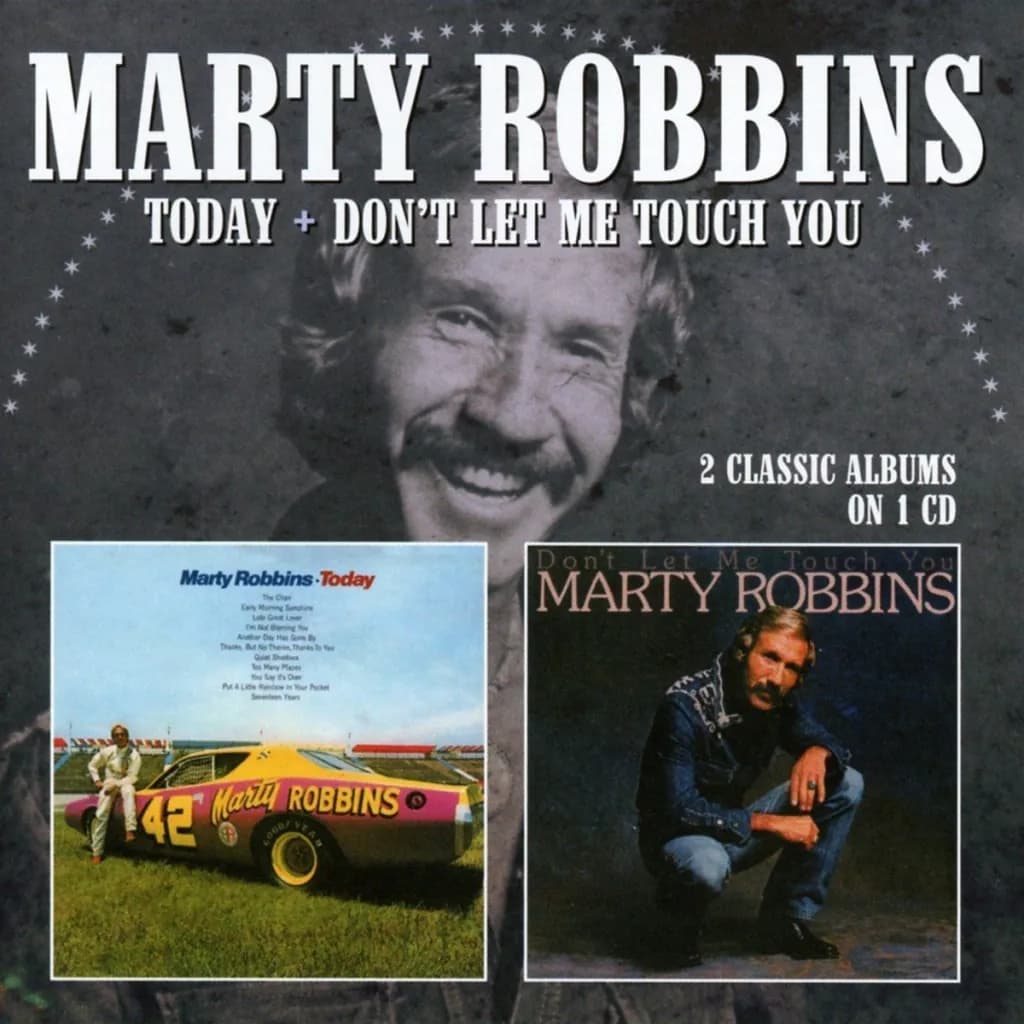
A Song of Quiet Acceptance: The Gentle Wisdom of “That’s All Right”
Some songs don’t shout their message — they whisper it, softly but truthfully, into the listener’s heart. Marty Robbins’ “That’s All Right”, from his 1963 album Return of the Gunfighter, is one such song: a warm, reflective ballad that speaks of letting go, of understanding life’s turns, and of accepting both love and loss with grace. It’s a song that doesn’t demand attention but earns it — the kind of tune that lingers long after the last note fades, wrapped in quiet wisdom and timeless humanity.
By 1963, Robbins was already a towering figure in country and western music, known for his grand tales like “El Paso” and “Big Iron.” Yet with Return of the Gunfighter, he shifted from the gun-slinging drama of his earlier years to something more inward — stories not of heroes, but of men who’ve lived enough to understand the weight of regret and the peace that comes from acceptance. “That’s All Right” fits beautifully within that mood: it’s not about glory or sorrow, but about learning to live gently with the past.
When the album was released, Return of the Gunfighter climbed into the Top 10 on the Billboard Country Albums chart, reaffirming Robbins’ ability to balance popular appeal with genuine artistry. “That’s All Right” was never a chart single, but its tender simplicity made it a favorite among fans who loved his softer, more introspective side. It remains a quiet gem in his discography — a song that older listeners often rediscover and find new meaning in, year after year.
The song opens with Robbins’ signature calm — his baritone steady, relaxed, yet full of feeling. The melody moves slowly, like a breeze across a wide open field, and the arrangement is restrained: gentle guitar, light percussion, and a touch of steel that shimmers like sunlight on a dusty road. It’s pure Marty — no pretension, no excess, just sincerity.
Lyrically, “That’s All Right” is a song about emotional maturity — about facing life’s disappointments and choosing understanding over bitterness. The narrator doesn’t fight against what’s happened; he simply acknowledges it. “You don’t love me anymore — that’s all right,” he seems to say, not out of indifference but out of wisdom. Robbins captures the feeling of someone who has known heartache but refuses to be hardened by it. There’s kindness in his tone, and that’s what makes the song so deeply touching.
In Robbins’ hands, the phrase “That’s all right” becomes something almost spiritual — a small phrase carrying enormous grace. It’s the cowboy’s equivalent of forgiveness, a nod to the truth that not everything in life can be controlled or held onto. That emotional balance — the ability to feel sadness and serenity at once — is what gives the song its quiet power.
Musically, Robbins and his band shape the song like a slow dance under starlight. The rhythm sways gently, as if inviting the listener to breathe, to pause, to reflect. His voice carries no anger, no plea — only warmth and acceptance. And for those who grew up with his music, this is what makes Robbins unforgettable: the way he could make even heartbreak sound comforting.
“That’s All Right” also feels like a reflection of Robbins himself. Behind his smooth smile and cowboy image was a man who understood life’s contradictions — its joys and sorrows intertwined. He wasn’t just singing stories of the West; he was telling the truth about the human condition, about what it means to keep moving forward with dignity and faith.
For many older listeners, this song holds a special resonance. It speaks to that stage of life when one has seen enough to know that peace doesn’t come from getting everything you want — it comes from learning to let go, to say “that’s all right” and truly mean it.
In the end, “That’s All Right” isn’t a song about loss — it’s a song about grace. It reminds us that sometimes, the most courageous thing a person can do is to accept what is and keep their heart soft anyway.
And as Robbins’ final notes drift into silence, one can almost see him tipping his hat beneath a quiet desert sky — smiling faintly, the way a man does when he’s made peace with the world, and with himself.